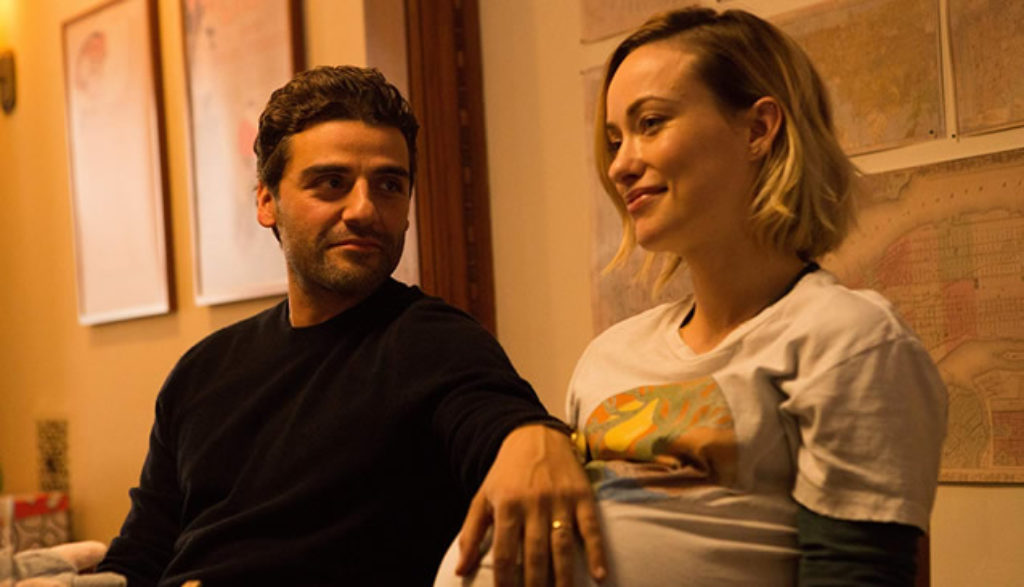
What is life?
Who gets to say how it begins, where it takes us, when it ends?
These are the kinds of questions humankind has pondered since the beginning. And these are the kind of questions that are raised in Life Itself.
This is a story of generations. It’s the story of Abby and Will; of Javier, Isabel and Mr. Saccione; of Dylan and Rodrigo. It’s the story of how seemingly unrelated incidents and locations are connected on deep levels. How tragedy and love are inherently intertwined. How life writes lines and scenes that we could never predict—and that we’d never want to imagine.
It’s a dramatic story that says if we continue to press forward through tragedy and despair, in the end, if we go far enough, we’ll find love.
This ensemble drama is undoubtly marred by tragedy and pain, as we’ll see. But it is also marked by life, love and joy. There are beautiful moments expressed in each and every relationship that show the value of being present, loving well and fighting for those who are most important in life.
Many scenes express something almost sacred amid the mundane stuff that makes up everyday life. And while the movie doesn’t overtly discuss the spiritual reality or purpose of life, it nevertheless wonders deeply why some people have harder lives than others. It also forces us to think about our roots and our connections with other people—and even with humanity.
Each person here (Abby and Will; Javier, Isabel and Mr. Saccione; Dylan and Rodrigo) exhibits deep love and devotion for other characters (even as they collectively share some significant ups and downs). We see many positive character traits of each person as this interwoven story unfolds.
Abby, for example, passinationely seeks to understand the deeper meaning of life. Will, for his part, is wildly committed to his wife and seeks to make her endlessly happy. Dylan, though a troubled young woman, wants to know her past history and to connect with someone. Rodrigo is a determined, kind soul who works hard to protect his family. Javier is a simple man who seeks a quiet life filled with hard work and love. Isabel is a fierce, determined character who doesn’t bow to the pressures of life. And Mr. Saccione is a comtemplative soul who longs, someohow, to redeem the sins and mistakes of past generations.
At one point, we see that a young woman has been given a beautiful gift: a full and happy life. She speaks admirably of the love her parents have for each other, and she tells their story with pride. She encourages others to move forward even when tragedy strikes, and she recognizes that while it may be easy to wallow in the “unspeakable” moments, real life ultimately isn’t found by staying stagnant and stuck.
Likewise, some parents are shown to be attentive and intentional as they pursue what is best for their children. One character attends mandatory therapy and, after some time, is able to open up to his therapist about past trauma. A baby is miraculously saved after a tragic accident.
While the movie isn’t inherently spiritual, it does ask some deep questions about life. Each character grasps at his or her purpose and place in the world and tries to understand what it is that makes life meaningful, though God never really enters the picture here.
A married couple is shown repeatedly in bed together. Once, they’re both shirtless, though we only see the woman’s bare back and his chest. We also see an unmarried couple in bed together in the morning. (The woman’s bra is also visible.) Couples kiss passionately. Women wear revealing clothes. A patient crudely discusses masturbation with his therapist. There’s a brief discussion about puberty and sexuality. A man shouts at a woman to take her shirt off.
A woman plays an April Fool’s Day joke on her boyfriend, telling him she’s off birth control and pregnant. Later, she continues the joke by saying, “I should just get an abortion,” and she asks him to make a decision before the baby “has a head or something.” We hear that a young woman was sexually abused by an uncle, beginning at the age of seven. It’s mentioned that a couple conceived their daughter while on their honeymoon, and later a woman gives birth to a baby girl. (Nothing graphic is shown.) A fictional character is described as “gay in that cool cat sort of way.” And someone makes a sexual joke
Many characters experience unspeakable loss throughout the course of this film. These deaths are tragic in several cases, leaving children virtually orphaned, and characters talk about why these events occurred. Young children suffer with the inevitable psychological issues that come from witnessing some of these tragedies. A man mentions that his childhood was scarred by an aggressive and abusive father who often beat his wife.
We learn that Abby’s parents died in a car crash when she was seven years old, and we hear that her father was decapitated. We hear that the little girl was trapped in the car for an hour; a flashback shows her in the car as glass shatters and blood runs down her cheek. Later, Abby shoots an abusive uncle in the knee. Will’s mother makes an insensitive comment about the death of Abby’s parents.
Two women get hit by a bus and killed; blood pours from their skulls. A man commits suicide: We see him shoot himself, and blood oozes forth from the fatal wound. We hear of another man who hangs himself in prison. Someone says that he’s happy for a friend who committed suicide, because he was able to escape from his treacherous past. A man jokingly puts a fake gun into his mouth and points it at his head.
A woman dies of cancer. A movie scene shows two men sitting in a car covered in blood. It’s mentioned that a cruel uncle kills his niece’s dog. A young woman throws a bottle at a belligerent man. A fight breaks out, and two men throw punches.
God’s name is misused six times, several of which are paired with “d–n.” Jesus’ name is misused once. The f-word is used more than 40 times (often related to a dog named “F— Face”), and the s-word is used more than 10 times. Other profanities and vulgar language include “d–mit,” “b–ch,” “h—,” “a–,” “a–hole” and “douche,” as well as multiple crude terms for the male anatomy.
Numerous people consume hard liquor, beer and wine and take shots of alcohol. A depressed man pours an excessive amount of liquor into his coffee and is later drunk; others get intoxicated (playing beer pong) at parties. Men and women smoke cigarettes. A woman smokes marijuana (and her grandfather asks for some). A college student holds a bong. A sign reads: “money or vodka.” A mentally disturbed patient takes multiple Xanax pills and mixes various prescription medications.
A man is institutionalized after a traumatizing event. In an attempt to cope with his life, he turns to some harmful behavior (creating fake scenarios in his mind) and is generally sarcastic, disconnected and absent. His therapist recommends that he visit his young baby (whom he’s never met), but he declines, unable to function after the passing of his significant other.
A man chooses to abandon his family after he feels he is unwanted. A troubled young woman avoids her only living relative and pursues a “wild” lifestyle. Multiple couples get into fights and marital disagreements. There’s a joke about a pregnant woman passing gas. A man is jokingly called “anorexic.”
We all come from somewhere. We all have roots. We all have a past: good or bad, happy or tragic. And each of us gets to decide what we will do with the hand we’ve been dealt. Will we allow life to knock us down? Or will we get back up and continue forward?
As one character here puts it, “Life brings you to your knees … lower than you think you can go. But if you stand back up and go forward … you will always find love.”
Life Itself is both beautiful and tragic. And it isn’t exactly what I expected going into it. This complicated story is skillfully told from the viewpoint of multiple narrators and unravels like a novel, where each person’s life represents something like a new chapter, filled with unexpected events. Along the way, characters grapple with deep philosophical questions, the kind that may resonate with many who see this film.
But some other things that resonate loudly in Life Itself are its harsh profanities as well as painful scenes of violence and terrible loss. (And, to a lesser extent, some sexual content and substance abuse.) The profanity here felt especially gratuitous in a story that seemed to be striving for a deep, personal impact. And as for the tragedies that are realistically depicted, they might be disturbing for anyone who has experienced a similar loss.
In the end, that content may hinder this gritty, emotional drama from accomplishing its thought-provoking purpose for some viewers.

Kristin Smith joined the Plugged In team in 2017. Formerly a Spanish and English teacher, Kristin loves reading literature and eating authentic Mexican tacos. She and her husband, Eddy, love raising their children Judah and Selah. Kristin also has a deep affection for coffee, music, her dog (Cali) and cat (Aslan).